Traditional Instruments and Their Role in Contemporary Composition
September 9, 2021, Prague
One-day conference
Academy of Performing Arts Prague, Czech Republic, and online
International Shakuhachi Festival Prague 2021 Symposium, organized by NEIRO Association for Expanding Arts in cooperation with the Music Theory Department, Music and Dance Faculty of the Academy of Performing Arts in PragueCall for Papers
Keynote speaker: Dai Fujikura
We are launching a call for submission open to composers, researchers, interpreters, who engage in contemporary music for traditional instruments and theoretically reflect upon it or compose it; to submit their proposals for a twenty-minute presentation followed by a ten-minute discussion. If necessary, the presentation can be extended by a maximum 10- minutes long music sample. The abstracts should not exceed 300 words.
When Claude Debussy heard the Javanese percussion orchestra gamelan some 130 years ago in Paris, it was a revelation for him that felt like a spark in tinder of the contemporary European traditions and conventions. After that encounter, nothing remained the same. We dare to say that as a result it has not only transformed Debussy himself, it has also transformed European music as such. Since then, the world has become one major transport hub, network and marketplace, where anyone can find anything from anywhere in the world.
Today, the attributes such as"exotic" basically lack their meaning. We witness a number of, more or less convincing, syncretisms in the music of various genres. Today, however, because we know much more about the music of non-western cultures than we did 130 years ago, we are able to simultaneously experience the vast diversity and the polymorphous interconnectedness of cultures across the planet. On a deeper musical-structural level, one can look for connections, where instead of syncretism, one can talk about synthesis. One's own musical identity can be interrogated either in a relationship to, or without attachment to, or in contrast to one’s own cultural environment. It is often a surprising discovery that what one is striving for has been accomplished centuries ago elsewhere.
Traditional instruments of non-European (and also European) cultures play an irreplaceable role in this creative leaven. What about them attracts contemporary artists? What do these authors strive for and what creative goals do they achieve by using these instruments? Should non-western regional instruments enter the European context - be the colorful extension of the European musical tradition? And should European regional instruments enter the soundscapes of other cultures - become homogeneous with them? Should these musical worlds coexist, or create a whole new world altogether? How, if at all, does the musical-cultural context of regional instruments influence a composer’s way of thinking? Can regional instruments be used without taking musical-cultural context into account?
At present time that many now call alter - or metamodern, it seems that the above mentioned phenomena are not only possible, but, in fact, are increasingly happening. What are their pitfalls, advantages, disadvantages, and practical consequences? Are these phenomena the result of acculturation, changes in the approach to music as such, or even the shifts of paradigm? These and many other issues are to be the impetus for sharing at the Symposium at the International Shakuhachi Festival Prague 2021.
About International Shakuhachi Festival Prague
The International Shakuhachi Festival Prague 2021 (ISFP 2021, www.isfp.cz), September 9 – 13, is an event dedicated to cultural and artistic exchange between Japanese and European contemporary music. Over the thirteen years of its existence, it has become an important artistic, networking and educational platform for musicians, composers, scholars and artists. Its long- term goal is to expand its audience perception for sound.
Selected papers with topics falling within the scope of musicology, artistic research, ethnomusicology, organology and music theory will be published upon peer review in Živá Hudba/Living Music Review, the journal of the Music and Dance Faculty of the Academy of Performing Arts in Prague.
Written papers, however, are not mandatory for the symposium presentations.
This symposium will be conducted in English and broadcasted online. We are also preparing an online option for speakers who cannot attend in person.
Symposium Committee:
Doc. MgA. Slavomír Hořínka PhD., Department of Composition, Music and Dance Faculty of the Academy of Performing Arts in Prague
MgA. Iva Oplíštilová PhD., Music Theory Department, Music and Dance Faculty of the Academy of Performing Arts in Prague
JUDr. MgA. Jakub Míšek PhD., NEIRO Association for Expanding Arts
Important dates
Abstract and recording (optional) submission deadline: 1 April 2021 Notice of acceptance deadline: 15 April 2021 Full papers for reviewed publication submission deadline: 30 June 2021
Symposium date: 9 September 2021
Abstract formal requirements
Range: Maximum 300 words
Submission
Presentation format: 20 min + 10 min
Paper formal requirements and submission Please see the website of ŽiváHudba/Living Music Review
Should you have any questions about the paper publication, please contact Jakub Míšek at jkb.misek@mail.muni.cz.
Symposium Fees and Registration : Speaker fee: 40 EUR
Symposium e-mail address: info@neiro.org
NEIRO Association for Expanding Arts z.s.
Holandská 1050/48
101 00 Praha 10-Vršovice
Czech Republic
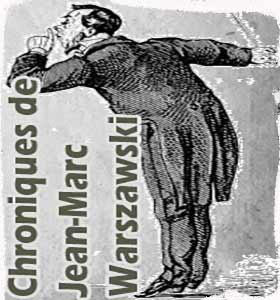
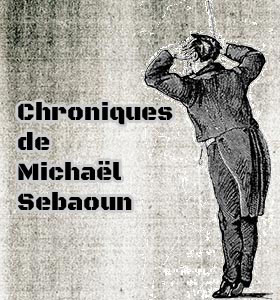
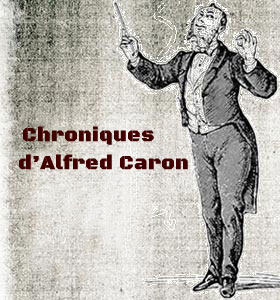
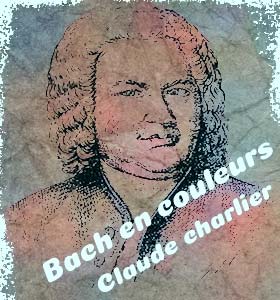
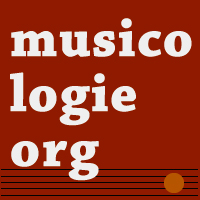 À propos - contact |
S'abonner au bulletin
| Biographies de musiciens | Encyclopédie musicale | Articles et études | La petite bibliothèque | Analyses musicales | Nouveaux livres | Nouveaux disques | Agenda | Petites annonces | Téléchargements | Presse internationale | Colloques & conférences | Collaborations éditoriales | Soutenir musicologie.org.
À propos - contact |
S'abonner au bulletin
| Biographies de musiciens | Encyclopédie musicale | Articles et études | La petite bibliothèque | Analyses musicales | Nouveaux livres | Nouveaux disques | Agenda | Petites annonces | Téléchargements | Presse internationale | Colloques & conférences | Collaborations éditoriales | Soutenir musicologie.org.
Musicologie.org, 56 rue de la Fédération, 93100 Montreuil. ☎ 06 06 61 73 41.
ISSN 2269-9910.

Samedi 25 Janvier, 2025

